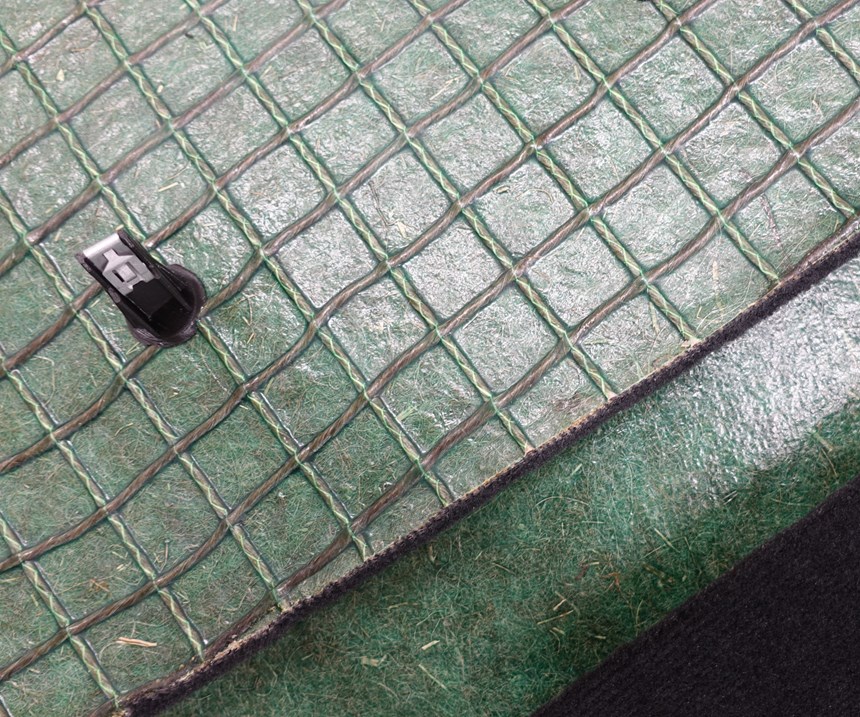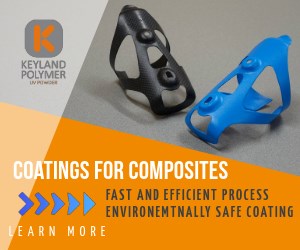Volvo XC60 demonstrator employs Bcomp's natural fiber reinforcement technology
Bcomp’s renewable fiber reinforcements are used in interior panels in the recycled plastics demonstrator vehicle XC60 to overcome the degraded properties of recycled plastic.
Bcomp Ltd. (Fribourg, Switzerland), a company specializing in natural fibers for lightweight high-performance composite applications, announced June 19 its collaboration with Volvo Cars (Gothenburg, Sweden).
As Volvo Cars release the recycled plastics demonstrator XC60 vehicle, Bcomp’s powerRibs natural fiber reinforcement technology is combined with ocean plastic. The resulting composite material enables the use of ocean plastic in semi-structural automotive interior parts, and simultaneously cuts up to 50% weight compared to standard parts.
Plastic waste in oceans a major environmental hazard. However, the degraded properties of recycled ocean plastic only allow for limited applications within the automotive industry. Bcomp’s powerRibs reinforcement technology, made from flax fiber, is used to boost the properties of ocean plastic allowing for its use in semi-structural interior parts.
Volvo Cars has declared its ambition that from 2025, at least 25% of plastics in new Volvo cars will be made from recycled material, a specially built XC60 T8 was launched to showcase new, more sustainable technologies during the Ocean Summit at the Volvo Ocean Race stopover in Gothenburg, Sweden.
Related Content
-
Materials & Processes: Resin matrices for composites
The matrix binds the fiber reinforcement, gives the composite component its shape and determines its surface quality. A composite matrix may be a polymer, ceramic, metal or carbon. Here’s a guide to selection.
-
Materials & Processes: Composites fibers and resins
Compared to legacy materials like steel, aluminum, iron and titanium, composites are still coming of age, and only just now are being better understood by design and manufacturing engineers. However, composites’ physical properties — combined with unbeatable light weight — make them undeniably attractive.
-
Composite rebar for future infrastructure
GFRP eliminates risk of corrosion and increases durability fourfold for reinforced concrete that meets future demands as traffic, urbanization and extreme weather increase.

.png;width=70;height=70;mode=crop)
















